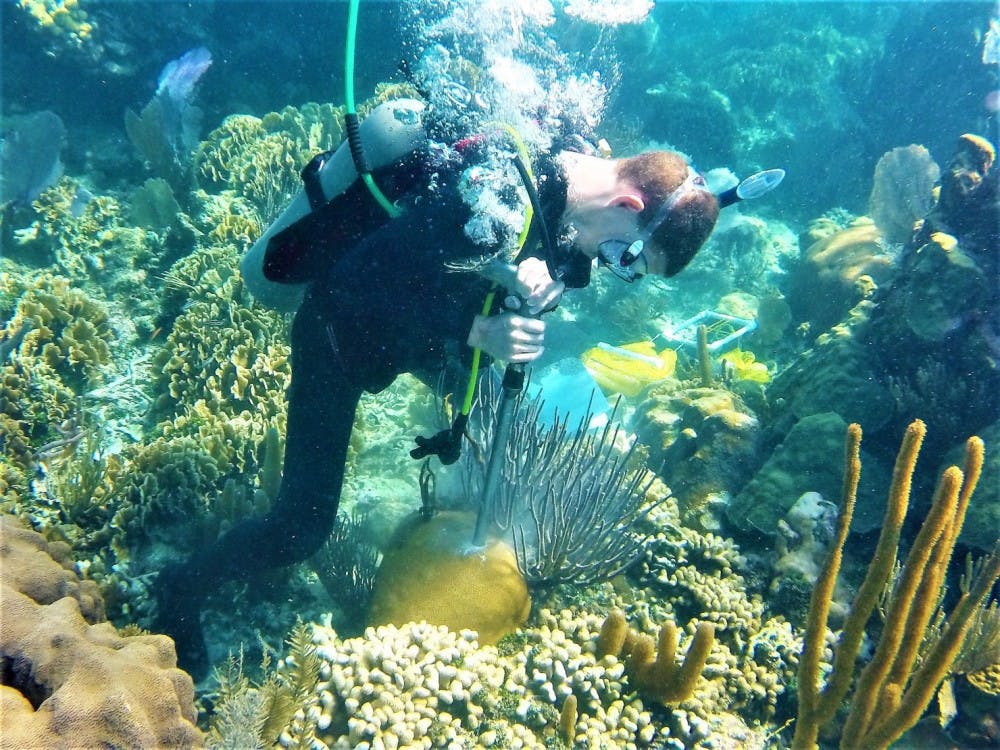To some, coral reefs are just the whimsical undersea environments that are fun to admire and that house some of the world’s most interesting creatures.
But many people’s knowledge about coral reefs and climate change stops at coral bleaching — the phenomenon where corals turn white and die in reaction to extreme temperatures. While this is a pivotal part of reef research, it is by no means the only problem that has arisen from the changing climate, said John Rippe, a graduate student and doctoral candidate for marine sciences in UNC's College of Arts and Sciences.
In studying coral density and growth rates in the reef system of the Florida Keys, researchers from the UNC Department of Marine Sciences have found another underlying issue with dangerous implications for marine life. By studying CT scans of drilled cores from two different species of reef-building corals across the reef tract, the researchers found some unexpected results.
“In a lot of areas — for example, in the Belize region — we see declining growth rates,” said Rippe, who led the study. “In this study, we saw that both extension and calcification have been pretty stable, which is not what we expected. But we found that the density of the coral skeletons is actually declining.”
In the Belize Mesoamerican Barrier Reef System, the rates of extension, or the growth of coral reefs upwards, are declining. However, the corals of the Florida Keys are experiencing declining skeletal density instead of changing growth rates.
This decrease is important because it means corals are now more susceptible to certain types of erosion resulting from other organisms around them. This leads to the flattening of reefs. With coral reef systems providing crucial habitats for numerous marine organisms, the impact could be devastating.
“The reef is built by the coral, and if the coral are flattening or growing slower, then we’re moving from this complicated 3D environment to a more two-dimensional environment," said Justin Baumann, a postdoctoral fellow in the marine sciences and biology departments who also worked on the study. "There are fewer spaces for other organisms to live, so then we lose some of our fish, we lose a lot of our invertebrates, we see ecosystem services – so, things that humans can benefit from – all declining, and that’s really bad."
The scientists chose the Florida Keys for its status as part of the Caribbean coral reefs as well as its ecological and monetary importance for the continental United States.
“(The Keys are) the largest and probably the most economically important reef in the United States, especially in the continental United States,” Baumann said. “We have reefs in Hawaii and reefs in Guam and Puerto Rico, but in terms of the continental United States, Florida Keys reef tract is clearly the largest and most important region that we have.”




